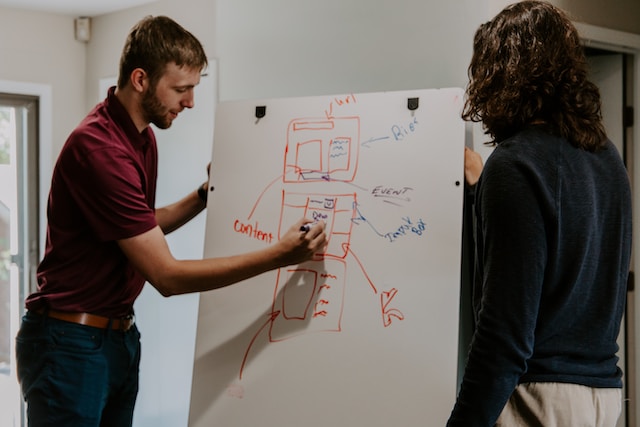The objective of a startup studio revolves around expediting startup growth by offering extensive mentoring and coaching from industry professionals. These studios function as incubators for emerging businesses, forming communities of like-minded entrepreneurs and offering a spectrum of resources such as marketing strategies and a pool of expert talent, including legal counsel, to aid in the establishment of new ventures.
In essence, startup studios are committed to alleviating obstacles inherent in launching a new business. They adopt a hands-on approach, allowing founders to concentrate on developing all facets of their business concepts.
Operating Mechanisms of the Startup Studio Business Model
Led by seasoned entrepreneurs, professionals, and industry experts, startup studios efficiently invest their business processes, capital, and expertise into crafting companies that ultimately strengthen their position within the industry.
A majority of today’s businesses owe their genesis to startup studios. These entities are well-versed in diverse business challenges and thus follow a systematic approach when initiating a new venture. The startup studio business model consists of five distinct phases:
Ideation Phase: Originating from a founder’s educational background or interests, business ideas may or may not translate into scalable ventures. Startup studios seek ideas with substantial scalability and investor appeal, involving brainstorming sessions and expert consultations to create disruptive business concepts.
Validation Phase: This phase entails comprehensive market research to assess the feasibility and scalability of the conceived business idea. Customer discovery plays a pivotal role in refining the value proposition by understanding customer personas, market size, and immediate competitors. Internal screening mechanisms within most studios filter out less promising ideas while validating the stronger ones.
Creation Phase: Ideas that pass through ideation and validation phases advance to prototype development, incorporating consumer feedback to refine and improve the product. Failure to transform a validated idea into a functional business might prompt studios to revisit the creation process or discard the idea altogether.
Spinning-Out Phase: Launching a new business necessitates a management team well-versed in its market. A “spin-out” involves the startup studio working with its staff or hiring external experts to establish the new venture.
Scaling-Up Phase: With the business now prepared to secure independent funding, startup studios may retain involvement or become passive board members, awaiting dividends and a substantial exit. Even as new businesses begin autonomous operations, startup studios continue providing guidance to facilitate their growth.
The startup studio model aims to mitigate the risk of business failure by emphasizing early-stage funding, data-driven decision-making, and granting founders access to industry experts. Interested in exploring more about the startup studio realm? Visit StartupStudioInsider.com for more information.






